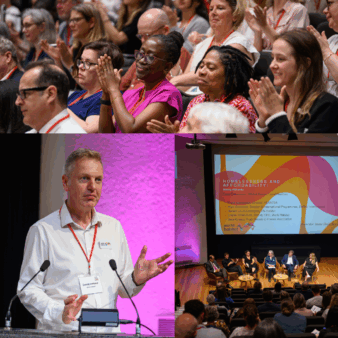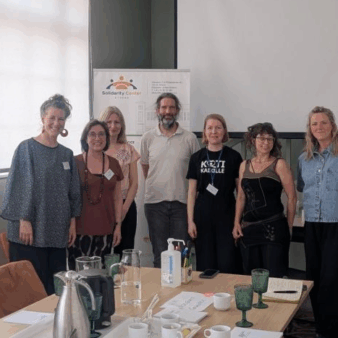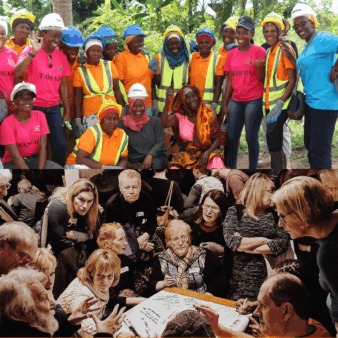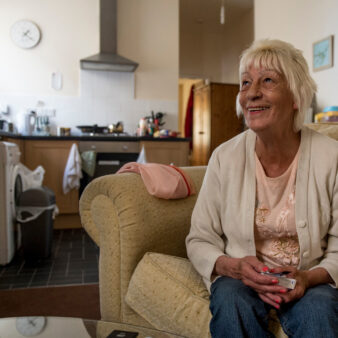Community-led housing (CLH) – (sometimes referred to as collaborative housing) – simply means housing where residents and communities play central roles in the development and management of where they live.
Many CLH projects offer both affordability and positive social benefits. At World Habitat we particularly value CLH projects that not only benefit their residents, but also answer global challenges, such as the financialisation of housing, vulnerable communities, and the climate emergency.
In this animated video we explain how Community Land Trusts, which are a form of CLH, work and why they are needed
How is CLH delivered?
- Group-led: Grassroots groups responding to housing need or demand, or people seeking to deliver their own homes or change the model for their existing homes. Housing groups usually come together based on a geographical connection – for example, being part of an existing neighbourhood – or decide to come together through something else they have in common, such as shared values or having similar needs.
- Existing activity: Existing community organisations with local roots decide to include housing in addition to their current activities.
- Developer-Community partnerships: A local authority, landowner or social housing provider that wants to provide housing that benefits the local area permanently can partner with local people to organise CLH, through a community body. Typically this group would eventually take over ownership, stewardship and/or management of the homes.
The resulting housing can take different shapes and forms – from new-build, regeneration and the use of existing buildings, or re-blocking an existing settlement. Community-led housing can also help existing homes (for example, occupied but without formal rights to land) to move to a new type of model that protects and supports residents.
How does CLH work in practice?
Community led housing can take many forms – a cooperative, Community Land Trust, Mutual Home Ownership Society, co-housing, or something else. Some CLHs are developed informally and are similar to traditional and indigenous ways of collectively managing land. They might not be fully formalised and recognised into a legal structure but are still effective and valuable.
Other ways that communities can help to deliver housing include:
- Community savings and other finance and fundraising
- Community-led data collection, mapping, and research
- Decision-making over choice of legal models and/or design
- Negotiations with local authorities
- Participation in the construction process
The choice of model and strategy depends on the community’s needs, what resources are available, the location, and existing legal frameworks.




